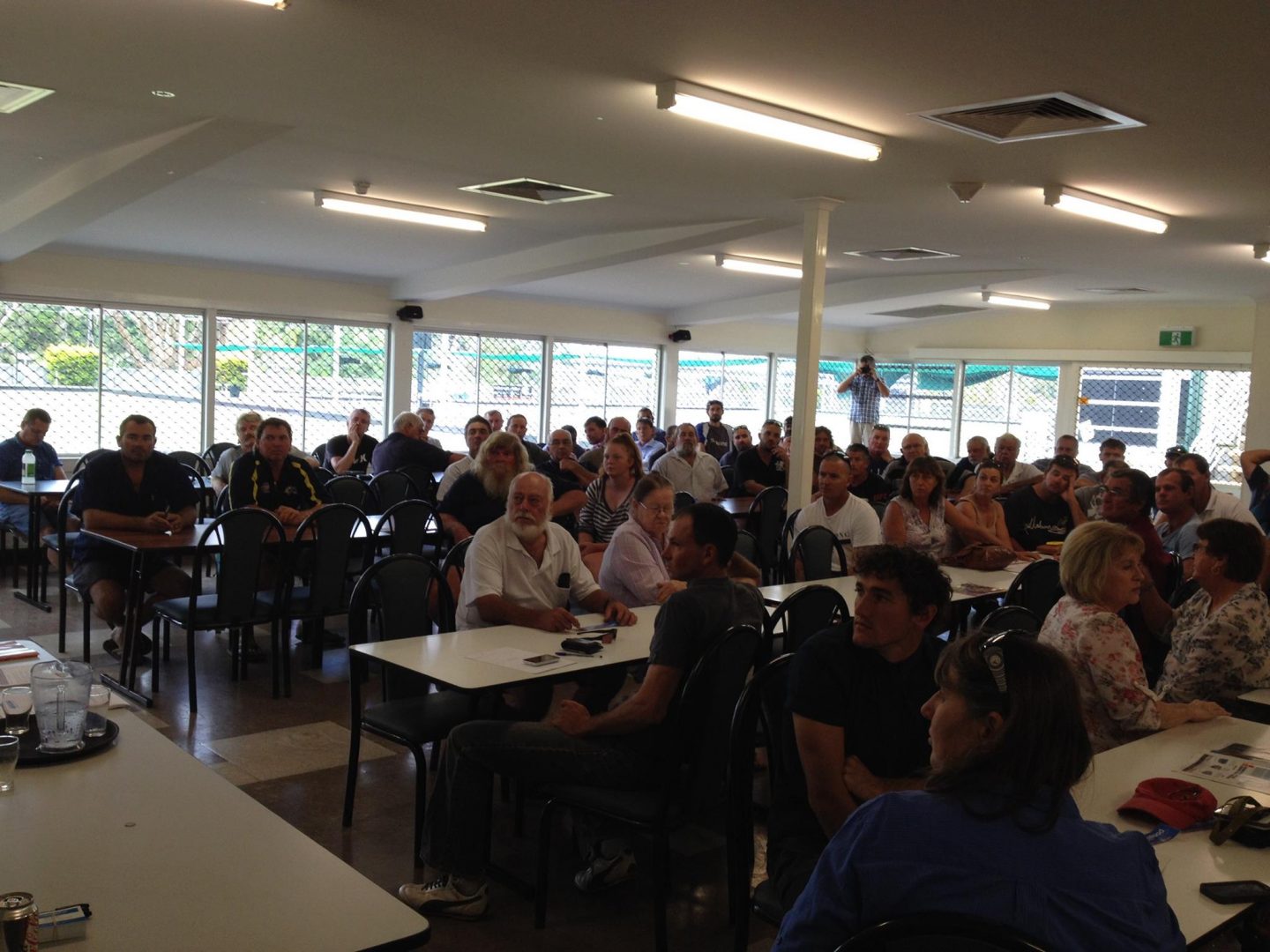Commercial fishing families under continuing distress

The ongoing fisheries reform process and inability of the previous fisheries minister to remove the political element from fisheries management led to the net free zones and continues with the current reform process.
Media Release_Mental Health_2 July 2018
THE Queensland Seafood Industry Association (QSIA) remains alarmed at the level of psychological distress endured by Queensland commercial fishers and their families. “I am continually saddened by the continuing degree of psychological distress across my industry and I hope my fellow commercial fishers make time to speak with their GP,” QSIA President Keith Harris said today.
Mr Harris said today he was very concerned with new the findings of an anonymous K10 (Kessler Psychological Distress Scale) test analysed by Dr Tanya King, an anthropologist within Deakin’s School of Humanities and Social Sciences. ‘The K10 is a set of questions developed by Ronald Kessler and is used widely as an indicator of unspecified psychological distress’ said Dr King.
The test has been used in the past by the Australian Bureau of Statistics with a range of scoring outcomes. Dr King noted, ‘as part of the K10, respondents can score between 10 and 50, with ten indicating a very low likelihood of mental illness, and 50 indicating a very strong likelihood of mental illness, probably requiring intervention. A score of 10-15 suggests low psychological distress; a score of 16-21 indicates moderate psychological distress; while a score of 22-29 indicates high psychological distress while a score of between 30-50 suggests very high psychological distress’.
‘Of the 15 men, 6 women, and one other (who did not indicate a gender) who completed the K10, 16 or (72.7%) scored over 22, which puts them in the category of suffering from high or very levels of psychological distress. In the general population this score is around approximately 12 percent. Over half of those surveyed returned scores of 30 and over, which places them in the category of suffering from very high levels of psychological distress; this number is around 4 percent in the general population’ said Dr King.
‘Commercial fishers are part of our communities and want to continue to work and provide seafood to the community and visitors to Queensland. The stress my industry is under is a result of the pressures of the reform process and a feeling that our futures are in the hand of special interest groups’.
ENDS
Further Information:
Keith Harris, QSIA President, Mobile 0427 713 445
Eric Perez, QSIA Chief Executive Officer, Mobile 0417 631 353, [email protected]
Nicholas Payne, Deakin University, Media Coordinator, Media Relations & Corp Comm, Phone (03) 5227 8025, [email protected]
The QSIA is the peak body for the State’s wild catch fishers.
Additional Material
The report compiled by Dr Tanya King was based on the responses of 22 commercial fishing respondents. The general response pattern follows current research undertaken by Dr King that suggests commercial fishers across Australia are highly distressed.
Respondents fell into every category of the K10 survey instrument suggesting that not all commercial fishers are feeling distressed but run the spectrum of stress impacts.
The anonymous comments attached to the K10 survey is alarming. While mental illness is rarely about a single issue or incident, the comments clearly point to the significant role of the Queensland fisheries reforms in their psychological distress, as well as to the general spectre of mental illness in the industry and the need to shine a light on this issue more generally:
- ‘I am worried every day that everything I have worked for will be taken away at the stroke of a pen and I am not going to provide for my unborn child and my partner. I feel suicidal sometimes when it all gets too much. I am just a farmer of the sea trying to make a living for my family’.
- ‘I shouldn’t be worried about my future but being a self-employed operator I find it hard to sleep without a knot in my stomach if I start thinking about my situation & what’s taking place without any consent to small operators like myself. Yes, I am stressed on a daily basis but try not to dwell on it as our government will do as they please’.
- ‘Since the new QLD reform has been posted, I have just felt really bad. The industry won’t survive the new proposals’.
- ‘We are doomed there’s no hope’.
- ‘The stress over the past couple of years has affected not just me but my fiancé who has tried to keep us afloat’.
Author: Eric Perez, CEO – Queensland Seafood Industry Association
Image: Save the Professional Fishing Industry
The content of this post is provided for information purposes only and unless otherwise stated is not formal QSIA policy. The information on these posts are provided on the basis that all persons accessing the information undertake their own responsibility for assessing the relevance and accuracy of it.

